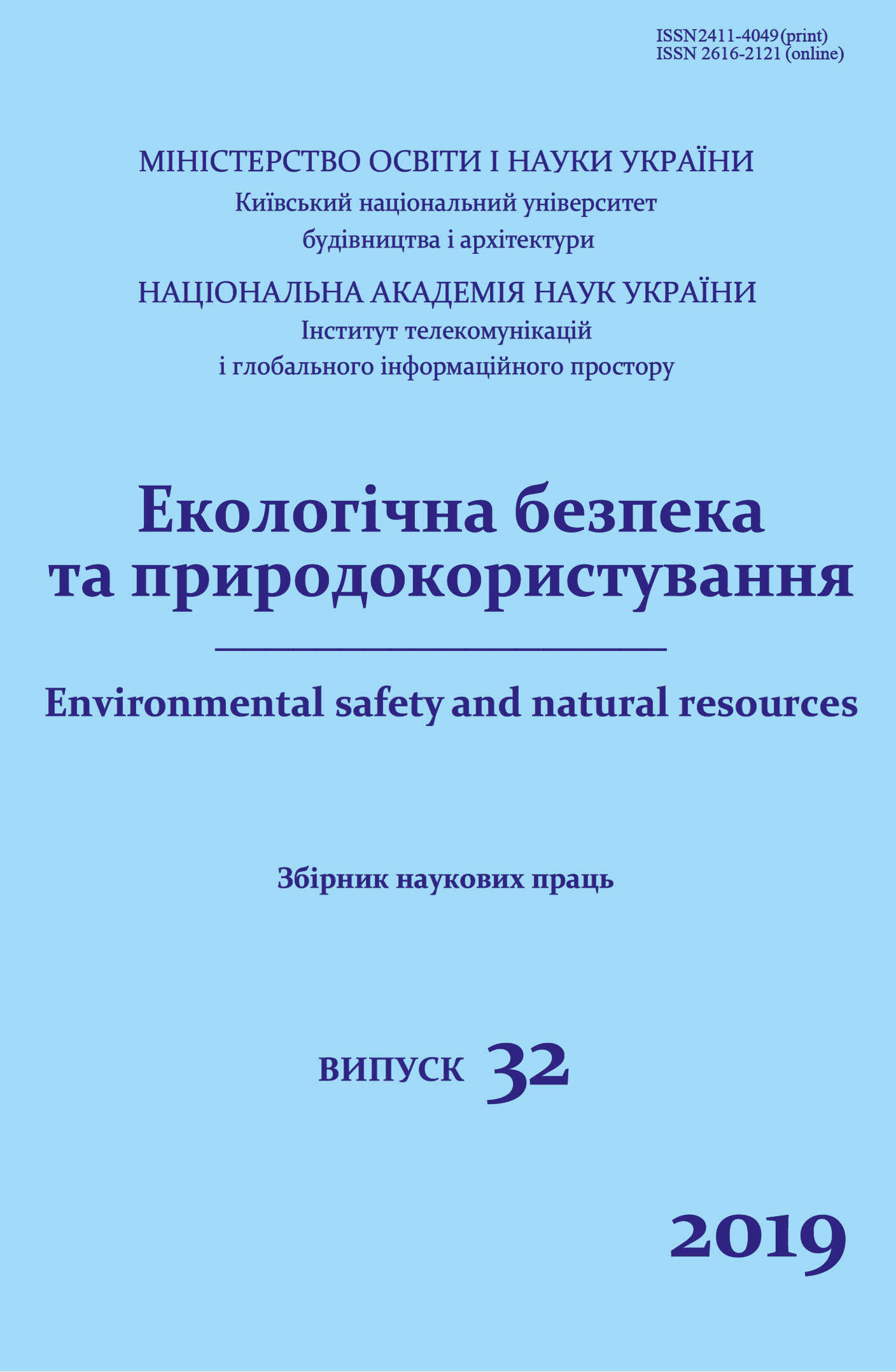Development of management measures to bring the territory of Carpathian Biosphere Reserve into alignment with the international requirements
DOI:
https://doi.org/10.32347/2411-4049.2019.4.23-31Keywords:
sustainable development, natural reservation fund, biosphere reserve, transit zoneAbstract
The modern ecological challenges of the territories with conservation status have impact not only at the national level, but also at the global. That is why the solution to address the administrative challenges of these territories located in our country and bringing them into alignment with the international requirements is becoming more relevant.
The purpose of the study is to develop measures aiming to create a transit zone of the Carpathian Biosphere Reserve in the context of the sustainable development.
Research materials and methods of the study. From the traditional general scientific methods used: analysis and synthesis; comparison and analogy; generalization and abstraction; project management (planning and implementation of measures aiming to create a transit zone of the Carpathian Biosphere Reserve).
The relevance of this work is quite high. The conservation business in Ukraine is developing and improving every year. The process of increasing the conservation territories is relevant not only in Ukraine but also beyond its borders. Unfortunately, the legal framework of our state in the field of conservation does not fully ensure the proper use, reproduction and protection of the biosphere territories with conservation status.
The Carpathian Biosphere Reserve is one of the largest environmental, scientific, environmental and educational centers of the Carpathian region. Since 1993 it has been part of the World Network of Biosphere Reserves of the MAB-UNESCO.
The article gives an example of bringing the territory of a biosphere reserve to the international requirements for biosphere reserves; the main directions of activity aimed at collaboration of the administration of the Carpathian Biosphere Reserve with local communities and recommendations to implement the measures to ensure the creation of a transit zone of the biosphere reserve in Ukraine.
Some issues remained unresolved and some were only partially resolved, that is why the issue of improving the existing legal framework remains very relevant, taking into account the international commitments of Ukraine in the field of the sustainable development of reservation areas.
References
Categories, objectives and criteria for protected areas. (1978). Morges: IUCN.
Rybak, M. P., & Proc, M. D. (2014). Sushasnij stan, problem ta shljaxi pokrashennja oxoroni teritorii Karpatskogo biosfernogo zapovednika. [Modern state, problems and ways of improvement of guard of territory of biosphere reserve of Carpathians]. In Osnovy upravlinnia biosfernymy rezervatamy v Ukraini. Mizhnarodnyi naukovo-praktychnyi seminar «Rozvytok systemy biosfernykh rezervativ v Ukraini» (1-3 zhovtnia 2014 roku, Uzhanskyi natsionalnyi pryrodnyi park, Zakarpatska oblast) (pp. 258–261). Ujgorod: КP «Ujgorod city print». (in Ukrainian).
Zakon Ukraini «Pro prirodno-zapovidnij fond Ukraini». (1992). [Law of Ukraine «About the naturally protected fund of Ukraine»: on June, 16, 1992]. Kiev: Vidomosti Verhovnoi Radi Ukraini (in Ukrainian).
Didyx, Ja. P., Parchuk, G. V. (2014). Stan ta perspektivi rozvitku merezhі bіosfernih rezervatіv v Ukraїnі [The state and prospects of development of network of biosphere резерватів are in Ukraine]. In Osnovy upravlinnia biosfernymy rezervatamy v Ukraini. Mizhnarodnyi naukovo-praktychnyi seminar «Rozvytok systemy biosfernykh rezervativ v Ukraini» (1-3 zhovtnia 2014 roku, Uzhanskyi natsionalnyi pryrodnyi park, Zakarpatska oblast) (pp. 144–150). Ujgorod: КP «Ujgorod city print» (in Ukrainian).
Vidannja ta publіkacії Karpats'kogo bіosfernogo zapovіdnika [Edition and publications of biosphere reserve of Carpathians]. (n.d.). Retrieved January 18, 2019, from http://cbr.nature.org.ua/vydan_u.htm
Rekomendacії mіzhnarodnogo naukovo-praktichnogo semіnaru «Rozvitok sistemi bіosfernih rezervatіv v Ukraїnі». (2014). [Recommendations of international research and practice seminar are "Development of the system of biosphere резерватів in Ukraine"]. In Osnovy upravlinnia biosfernymy rezervatamy v Ukraini. Mizhnarodnyi naukovo-praktychnyi seminar «Rozvytok systemy biosfernykh rezervativ v Ukraini» (1-3 zhovtnia 2014 roku, Uzhanskyi natsionalnyi pryrodnyi park, Zakarpatska oblast). Ujgorod: КP «Ujgorod city print». (in Ukrainian).
Rybak, М. P. (2016). Pro privedennja teritorіal'noї strukturi Karpats'kogo bіosfernogo rezervatu (Ukraїna) u vіdpovіdnіst' do kriterіїv Statutnih ramok (Polozhennja) Vsesvіtn'oї merezhі bіosfernih rezervatіv MAB JuNESKO [About bringing of territorial structure of biosphere резервату of (Ukraine) Carpathians to conformity with the criteria of the Regulation scopes (Position) of the World network of biosphere резерватів of МАБ of UNESCO]. Green Carpathians, (1-4), 6-9. (in Ukrainian).
Sevilian strategy: aim and task. (n.d.). Retrieved January 18, 2019, from http://www.unesco.org/new/en/natural-sciences/environment/ecological-sciences/.
Downloads
Published
How to Cite
Issue
Section
License
Copyright (c) 2019 Mykola P. Rybak, Vitalina V. Lukianova, Victoriia O. Khrutba, Yevheniia S. Anpilova

This work is licensed under a Creative Commons Attribution 4.0 International License.
The journal «Environmental safety and natural resources» works under Creative Commons Attribution 4.0 International (CC BY 4.0).
The licensing policy is compatible with the overwhelming majority of open access and archiving policies.

